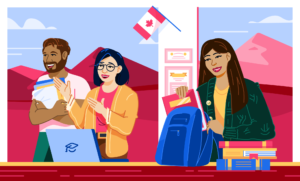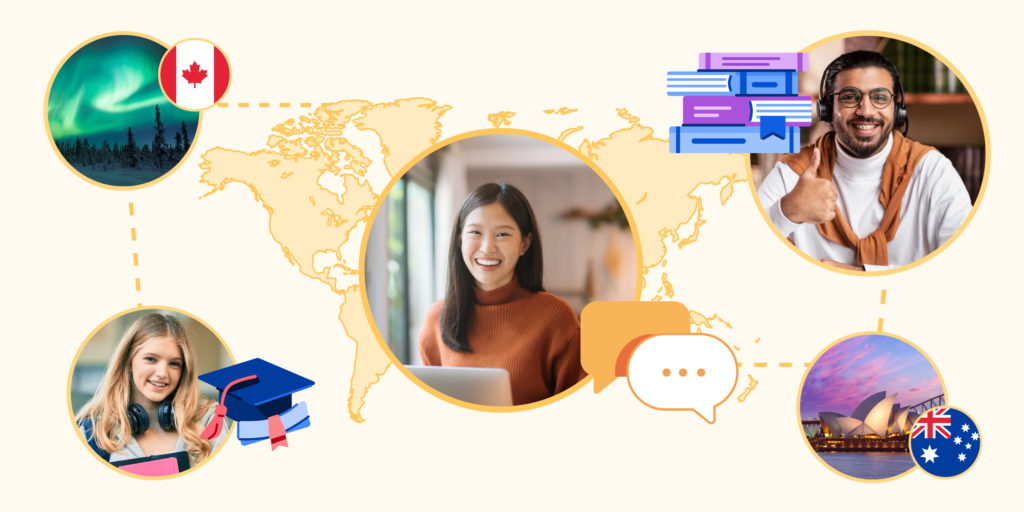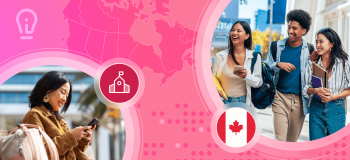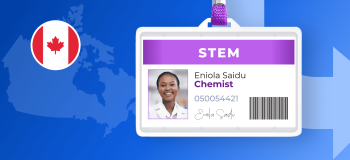Raveena Desai was a student from India who made the decision to study in Canada during the pandemic. Raveena is now a Public Relations Specialist at ApplyBoard, offering her the opportunity to share stories about international education and the importance of enabling access to education. We asked her some questions about her study abroad experience, including how she made the decision, what challenges she’s faced, and what she’s learned along the way.
Read on to find out more about Raveena’s study abroad journey!
Please note that Raveena’s responses have been edited for brevity.
1. What led you to make the decision to study abroad?
I was born and raised in the Indian city of Mumbai. My entire life has been spent with my family. I’ve always wanted to live in a different country and have an independent life. As a result, I intended to pursue my higher education abroad. However, after graduating, I began working in the field of public relations and marketing, which I thoroughly enjoyed, so I postponed my intentions to continue my education.
During the pandemic, I realized that going overseas to study and get experience in a different country would be fantastic. Plus, I’d always wanted to learn marketing as a subject, so it led me to make the decision to study Marketing Management at George Brown College in Canada.

2. What were the funniest cultural differences you noticed once you arrived in Canada?
I noticed that everyone is quite courteous and pleasant to one another. That was a significant social distinction I saw. It was a very different experience for me when strangers greeted me as they walked by. I was taken aback at first, but I’ve grown to appreciate it. It’s incredible to witness people connecting with one another.
Curious about how to approach cultural differences? Check out our four top tips for international students adjusting to a new culture!
3. How would you describe your experience with academic work in your home country compared to in Canada?
The main difference between Indian and Canadian education, in my opinion, is that in Canada, there is a more practical approach to studying and teaching things. A professor will ask you to put whatever theory he or she is teaching you into practice through a project or case study.
For example, in one of our lectures, we were taught several strategies to sell a product, and in an exam, we were given scenarios in which we had to come up with a marketing plan. Rather than learning about something as a theory, this gives students a greater comprehension of the subject.

4. Did you have any language barriers? If so, how did you deal with them?
No, I didn’t have any language barriers because I received my entire education in English in India, so it wasn’t an issue for me.
Want to brush up on your English skills? This article has five tips for studying English as a second language.
5. What financial advice would you give to people who are thinking of studying abroad?
Students should save their money, in my opinion. I think that students should work a part-time job in addition to their GIC. This helps them repay their loans faster, and by working part-time, they’ll obtain Canadian experience, which will help them advance in their careers.
Make the most of your student budget with these helpful tips!
6. Would you do anything differently?
No I would not, because whatever I did helped me in one way or another.

7. What was the most fun part of studying abroad? And the most challenging part?
Learning about a new market and understanding how it differs from the Indian market was one of the most enjoyable aspects of studying abroad. I was also able to interact with my instructors and collaborate with them on other projects. The most challenging part of studying abroad was returning to school and adjusting to it after a six-year break.
Studying abroad in a different country can come with its own challenges. Find out how to deal with them in this article!
8. Did you learn anything about yourself in the process of studying abroad?
Yes, the entire study abroad experience humbled me. As a student, I used to work at McDonald’s, which offered me a lot of life experience. Aside from what I learned in school, working at McDonald’s has taught me basic things that have benefited me throughout my life. Dealing with problematic customers taught me more about customer service, I learned that no task is insignificant, and most importantly, I learned that one cannot get comfortable in their part-time jobs. This is something that I would like every international student to know.

We thank Raveena for her time and collaboration with our interview, and for helping other students get one step closer to their study abroad dreams.







